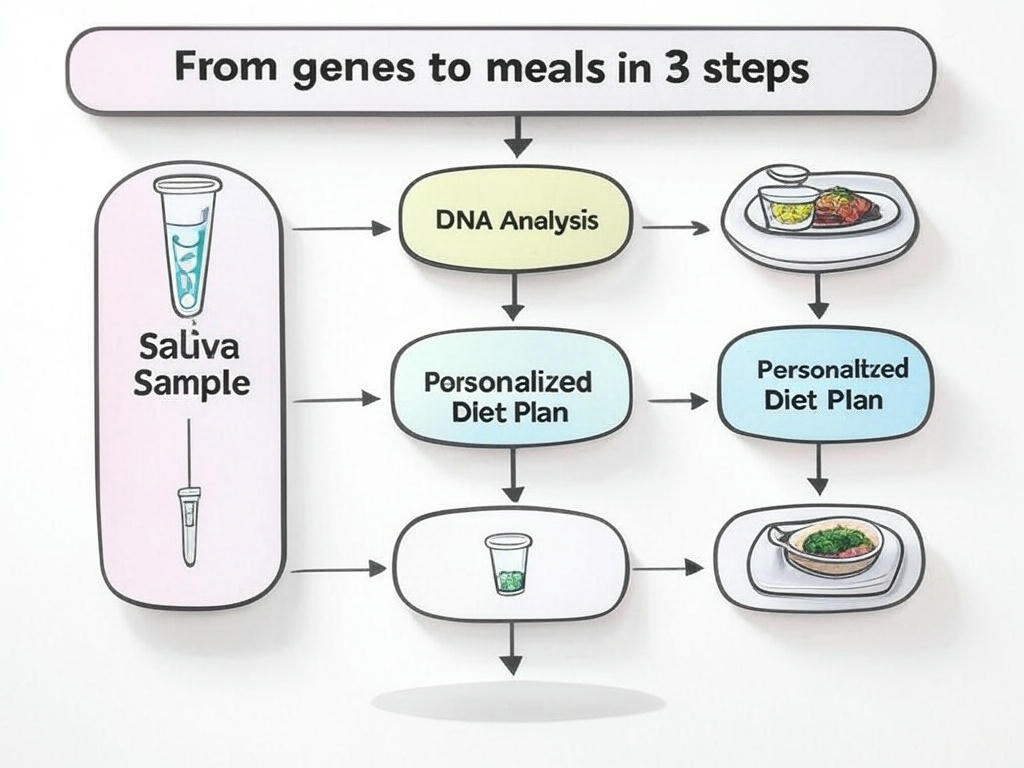Introduction: Understanding Nutrigenomics 🌟
What if the secret to your perfect diet isn’t in a fad cookbook but locked in your DNA? Welcome to the world of nutrigenomics, the science that explores how our genes interact with the food we eat. Imagine a meal plan tailored not just to your taste buds but to your genetic blueprint—pretty cool, right? 😎 This emerging field promises to revolutionize personalized nutrition, offering a bespoke approach to eating based on who you are at a molecular level.
But how does it work? Can your genes really guide your grocery list? Let’s unravel the science behind DNA-based diets and see if they’re the future of food.
Genetic Influence on Diet 🧪
Your DNA isn’t just a family heirloom—it’s a playbook for how your body processes nutrients. Genes influence everything from how you metabolize carbs to whether caffeine keeps you buzzing or leaves you flat ☕. For example, variations in the FTO gene can affect your appetite and weight gain, while the LCT gene determines if lactose (hello, dairy!) is your friend or foe.
Nutrigenomics digs into these quirks. By analyzing your genetic profile, experts can pinpoint which foods might boost your energy, reduce inflammation, or even lower disease risk. It’s like having a dietary GPS coded into your double helix! 🗺️
Practical Uses and Considerations 🛠️
So, how do you turn genes into grub? It starts with a DNA test—usually a simple saliva swab sent to a lab. Companies like 23andMe or specialized DNA diet providers analyze your results and churn out personalized recommendations. Maybe you’ll learn you need more omega-3s for heart health or fewer carbs to keep your blood sugar steady.

But it’s not plug-and-play. You’ll need to pair the data with lifestyle factors (exercise, sleep) and consult a nutritionist to make it actionable. Plus, these tests aren’t cheap—prices range from $100 to $500. Worth it? That’s the million-dollar question 💸.
Pros and Cons ⚖️
Pros 🌈
- Precision: Tailored advice beats one-size-fits-all diets.
- Health Boost: Optimize nutrition to prevent deficiencies or chronic conditions.
- Motivation: Knowing your genetic “why” can inspire lasting change.
Cons 😕
- Cost: Testing and follow-ups add up.
- Limits: Genes are just one piece of the puzzle—environment and habits matter too.
- Science Gaps: Nutrigenomics is young, and not all claims are rock-solid yet.
A study from Stanford found mixed results—some folks thrived on DNA diets, while others saw little difference. It’s promising, but not a magic bullet 🎯.
Conclusion: Personalized Eating 🌿
DNA-based diets are a tantalizing glimpse into the future of food—one where “eat right for your type” isn’t just a slogan but a science-backed strategy. The idea of personalized nutrition guided by your genes is empowering, offering a way to eat smarter, not harder. Yet, it’s not for everyone—cost, complexity, and evolving research mean it’s still finding its footing.
Will it replace your grandma’s recipes? Probably not. But as nutrigenomics grows, it could make your plate as unique as your fingerprint. Ready to dine by design? 🧬
